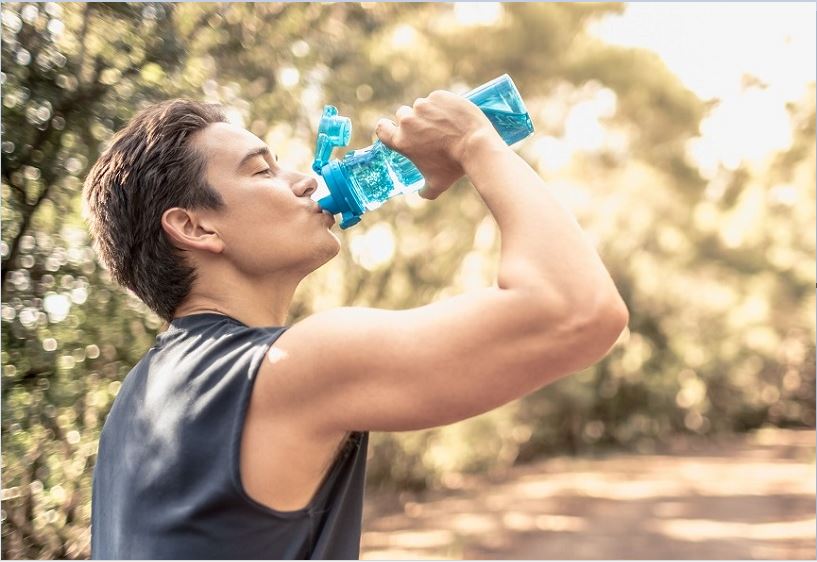How Hydration Impacts Your Workout Performance

One of the habits that make working out successful and beneficial is hydration. It’s crucial to stay hydrated before and after exercising to replenish the body and replace fluids lost. But what’s the exact impact does hydration have on your workout performance? The human body is about 60% water. That only goes to show that maintaining a proper body fluid level is essential for optimal body function.
During a workout performance, your body loses a lot of fluids through sweat. However, the rate at which you lose the fluids depends on the intensity of your workout and the environment’s temperature. Look at the way on how staying hydrated impacts your workout performance.
-
It’s Keeps Your Muscles And Joints Healthy
Working out involves your entire body, muscles, and joints included. You could also be keen on building muscle endurance, strength, and appearance with a host of routines and exercises. Staying hydrated is a crucial factor in developing strong muscles and joints. Staying hydrated benefits your muscles and joints in the following ways:
- It Reduces Muscle Cramps: When you fail to take enough fluids during a workout performance, you may experience dehydration cramps in your muscles. The more you sweat, the more you’ll lose sodium (salt). Salt happens to be an electrolyte and is vital for hydration and muscle strength.
Losing electrolytes may lead to involuntary painful contractions of the muscles. They’re caused by an abnormal function of the motor nerve responsible for muscle control. If you stay hydrated, sodium levels remain balanced, and so do the electrolytes.
- It Keeps Your Joints Lubricated: Fluids, especially water are vital components of the synovial fluid which is responsible for joint lubrication. If you’re dehydrated, you starve water to your joints as well. This may lead to an adverse impact on your joints, especially with the added strain of multiple movements or lifting weights. Staying hydrated provides enough fluid to keep your joints protected and moving correctly.
- It Speeds Up Muscle Recovery Time: When you exercise, your muscles are built by getting broken down and rebuilt through muscle protein synthesis. This process can leave muscles feeling sour. For the breakdown and rebuilding processes to be effective and muscles to recover promptly, your muscles need to be properly hydrated. When dehydrated, experts believe the healing process slows down significantly. You’ll end up having muscle sore, which may inhibit your workout consistency.
Staying hydrated impacts your workout by ensuring that your muscles and joints stay in shape to help you perform better, with less pain or discomfort.
-
It Enhances Your Pain Endurance Improving Your Performance
According to experts, drinking enough water may help reduce your pain sensitivity, while hypohydration causes a heightened pain sensitivity. This can negatively impact your workout performance by decreasing your motivation since working out through pain is difficult.
In addition, water helps to control body temperature, without which you may have physical and mental difficulty performing. When your body temperature goes above the normal range, it places undue stress on the body. This may, in turn, interfere with the energy system, negatively affecting your performance. If you want to perform to your optimum capacity and endure pain, stay hydrated.
-
It Increases Energy And Brain Function
Research indicates that hydration is essential for brain function, which is important for proper physical activity performance. Dehydration may cause the brain not to function as it should and may have these effects on you, among others.
- Difficulty in concentrating
- Mood swings
- Increased fatigue
- Memory loss and anxiety
These brain impairments may be caused by a loss of 1-3% body weight in dehydration. During a workout performance, the dehydration body weight loss may be higher. Working out requires you to be in good shape in your physical and mental function. Difficulty in concentrating can cause you to underperform. The same result can come from increased fatigue, anxiety, and mood swings.
-
Hydration Helps To Regulate Blood Pressure
Blood pressure is considered low when it’s below 90/60. When not properly hydrated, your blood pressure can go down because of decreased blood volume. This is the amount of blood flowing throughout your body. A decrease in body fluid means low blood levels as well. This may lead to low blood pressure, where your organs don’t receive enough oxygen and nutrients.
This may cause your body to go into shock, which is a life-threatening condition. The mild symptoms of shock include dizziness, headache, fatigue, profuse sweating, and nausea. When blood pressure is regulated, your heart rate normalizes, which may aid in the management of stress on your body during the exercise and afterward.
When the body becomes excessively stressed, it may interfere with your performance and recovery from the workout.
How Much Fluid Do You Need During Workout?

There’s no standard one size fits all measure for fluid intake while exercising. Different people and different environments produce varied results. The factors you need to consider in determining your fluid intake include:
- Heat and humidity in your workout environment
- Your sweat rate
- The length and intensity of your workout
The recommended method of staying hydrated is drinking water at least 2 hours before you start working out and immediately before you start. Stay hydrated throughout the workout session and drink water within 30 minutes of your workout. This ensures that the fluid level in your body stays balanced at all times.
Stay Hydrated, Perform Better
To perform optimally in your workout, will take more than exercising the right or using the right equipment. You need to ensure that your physical and mental fitness allows you to exercise and perform better each time. In addition to staying adequately hydrated, you need a well-balanced diet and rest.
Hydration particularly plays a vital role in your exercise performance and recovery. When not properly followed, it may lead to dehydration which brings other impactful effects on your performance. These include muscle injury, excessive loss of salt leading to unbalanced electrolytes, impaired brain function, unregulated blood pressure, or heat illness. Dehydration may also result in challenges performing and following your routine by making the workout feel more difficult.